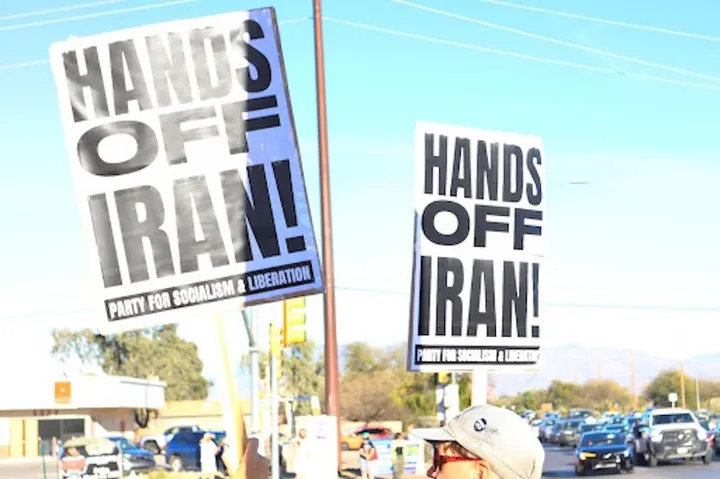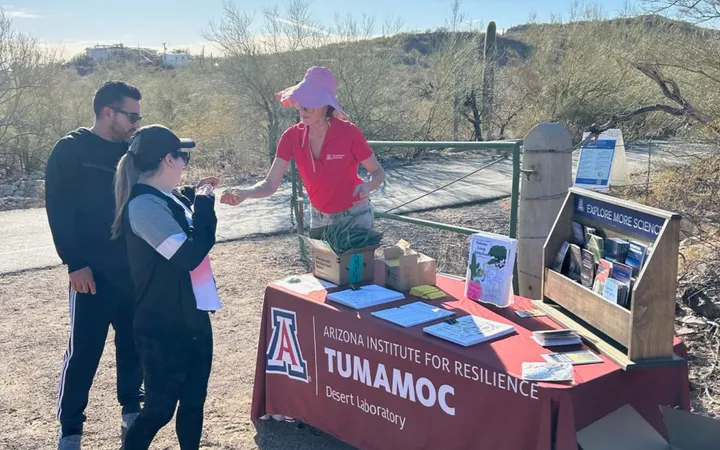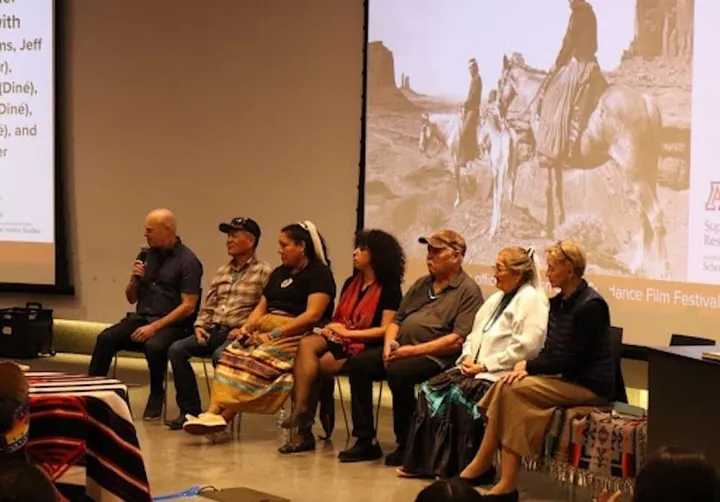Tucson nonprofits unify against proposed federal funding cuts
Proposed funding cuts in the upcoming federal budget have drawn concern and criticism from Tucson nonprofits who provide esssential services to communities across Southern Arizona.
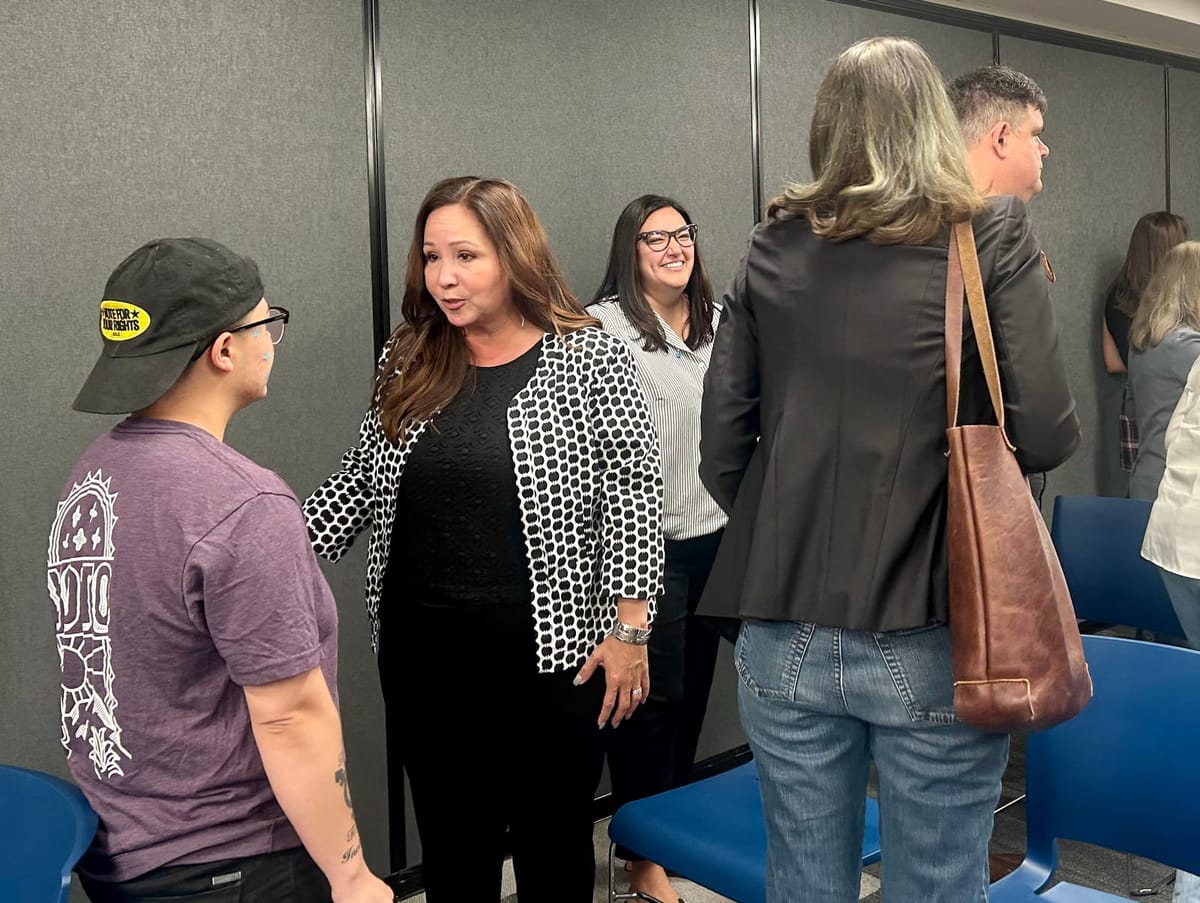
With billions in proposed federal budget cuts looming, Southern Arizona nonprofits are warning of devastating impacts to health care, housing, education and food assistance programs — services that thousands in the region rely on to survive.
Representatives from several area nonprofits gathered at the Community Foundation for Southern Arizona on Wednesday to discuss the impact of proposed funding cuts in House Republicans’ newly passed budget reconciliation package, dubbed the Big, Beautiful Bill.
As the 2026 fiscal year nears, proposed federal budget cuts — including $163 billion and a 22.6% reduction in non-defense discretionary spending — pose a serious threat to the nonprofit sector and the vulnerable communities that depend on its services.
“Today is a unified call to Washington, D.C., from the nonprofit community,” said Foundation President and CEO Jenny Flynn. “We urge you to fully understand the consequences of proposed funding cuts and prioritize the sustained investment of programs that directly support our communities.”
The foundation connects donors, nonprofits and community partners to improve equity and well-being in Southern Arizona, working toward meaningful philanthropy and lasting change. It has worked to address the community’s evolving needs since 1980, providing funding, training and collaborative opportunities.
Flynn was joined by representatives from eight local nonprofits that provide food assistance, child care, HIV/AIDS care, health care and housing support, among other vital services.
“These aren’t just random policy debates or decisions,” said Southern Arizona AIDS Foundation Chief Development Officer Lee Bucyk. “These cuts are significant and they are going to impact the lives of so many in our community.”
Last month, SAAF was notified of $2.1 million in funding cuts through the Ryan White HIV/AIDS Program, the largest federal initiative dedicated to providing HIV care, treatment and support services for low-income individuals who are uninsured or underinsured. If proposed reductions move forward, total cuts could reach $4.5 million in fiscal year 2026.
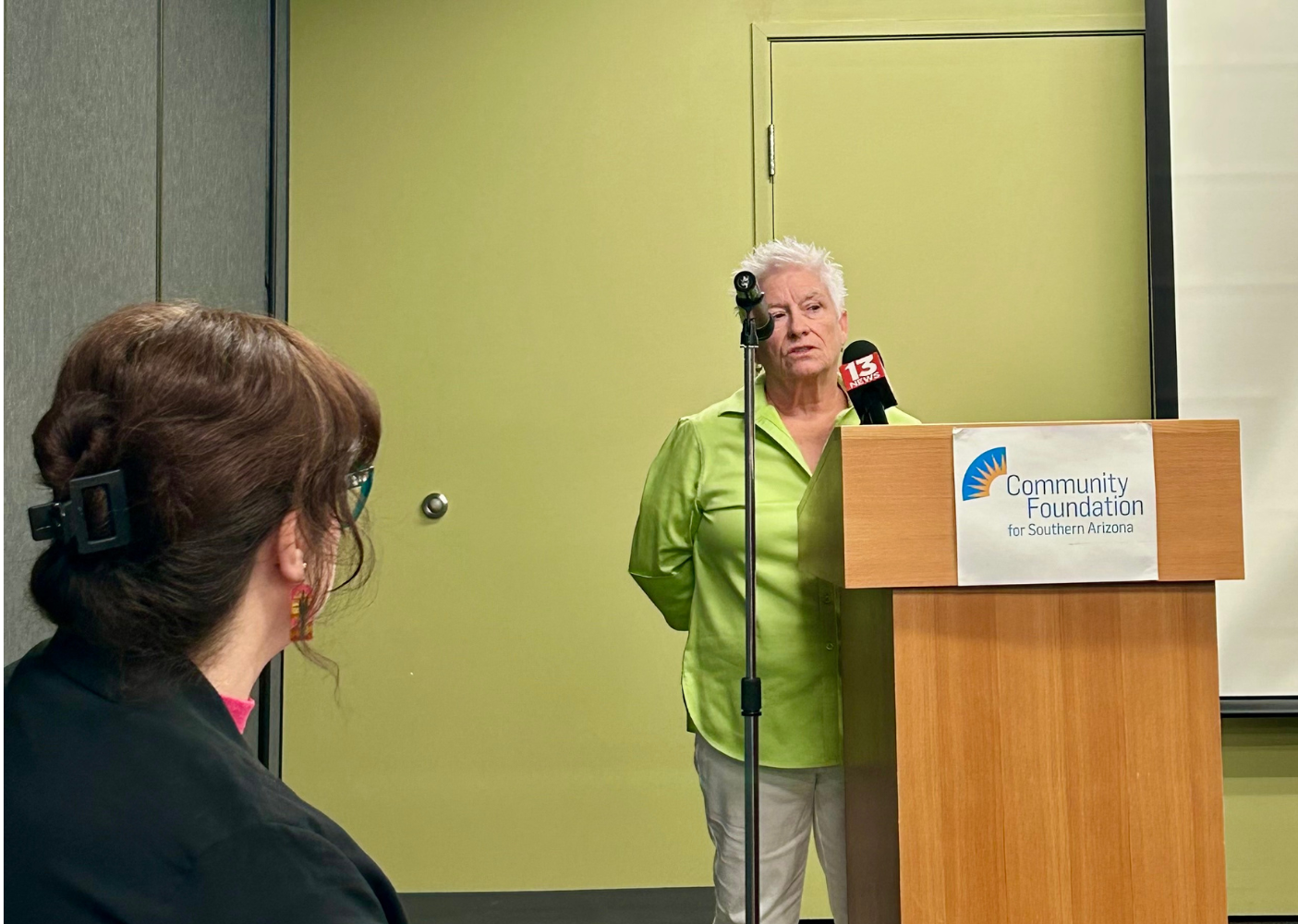
The funding reductions have already forced SAAF to lay off 14 staff members and would further limit testing hours for HIV, STIs and hepatitis C, directly affecting the vulnerable individuals and families who rely on these critical services.
Programs like Medicaid and SNAP would also take a heavy hit.
“Medicaid is the backbone of our health care for women living in or near poverty,” said former Pima County Supervisor and Congressional District 7 candidate Adelita Grijalva, a volunteer board member at the YWCA of Southern Arizona. “Cuts to Medicaid, whether through direct funding reductions, work requirements, or eliminating expansion, would be devastating.”
In 2024, 12% of Arizonans were assisted by SNAP, according to the Center on Budget and Policy Priorities, and the Arizona Health Care Cost Containment System — Arizona’s state Medicaid program — serves more than 2.2 million Arizonans.
“All of those who we serve through our programs will suffer,” Grijalva said. “This is not how we build strong communities. If these harmful policies are not stopped, we will have poorer, sicker and hungrier Arizonans.”
The bill propposes significant cuts to Medicaid, potentially jeapordizing access to treatment for substance use disorders for more than 1.6 million people.
CODAC Chief Clinical Officer Dan Barden spoke about how these impacts would worsen the fentanyl and carfentanil crisis across Southern Arizona.
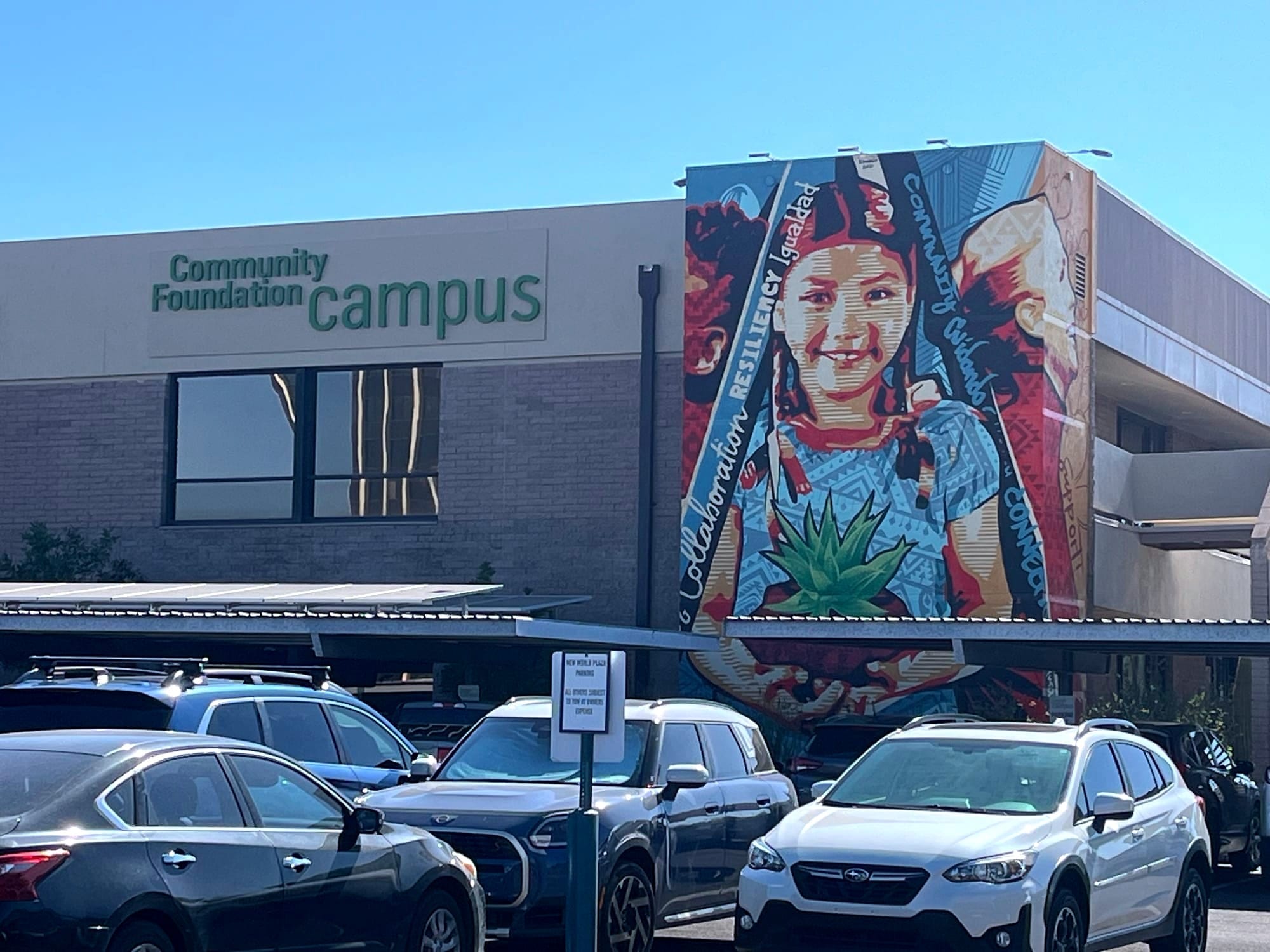
Arizona recorded more than 4,000 opioid overdoses and 1,800 opioid-related deaths in 2023, according to the Arizona Department of Education.
Funding cuts for CODAC would result in longer wait times for treatment, decreased access to care for those in urgent need, and fewer essential services like counseling and medication-assisted treatment.
“Recovery depends on access… when treatment is out of reach to people, the ripple effects are profound,” Barden said.
In Pima County alone, more than 2,800 young people are experiencing homelessness, according to Youth on Their Own CEO Elizabeth Slater, who works to keep students experiencing homelessness enrolled in school and on track to graduate.
“We ask you to join us and advocate for these students,” Slater said. “Because when we invest in these youth, we’re not just giving them access to school. We are giving them a fighting chance at a better future.”
The proposed federal budget eliminates all dedicated funding for the McKinney-Vento Act — a federal law that ensures homeless children and youth have equal access to the same free, appropriate public education, including preschool, as other children — and the Education for Homeless Children and Youth program. These programs have been in place since 1987.
“We’re standing up today because this is really, really important,” Flynn said. “I think our communities will not know what they have lost until it’s gone.”
Ruby Wray is a journalism and creative writing major at the University of Arizona and Tucson Spotlight intern. Contact her at rubywray@arizona.edu.
Tucson Spotlight is a community-based newsroom that provides paid opportunities for students and rising journalists in Southern Arizona. Please consider supporting our work with a tax-deductible donation.

